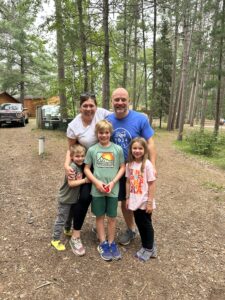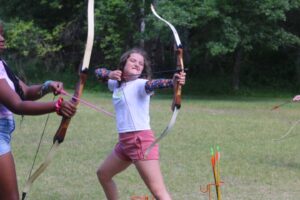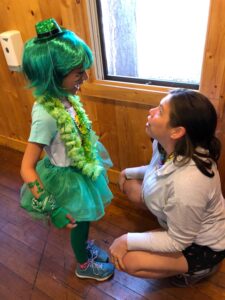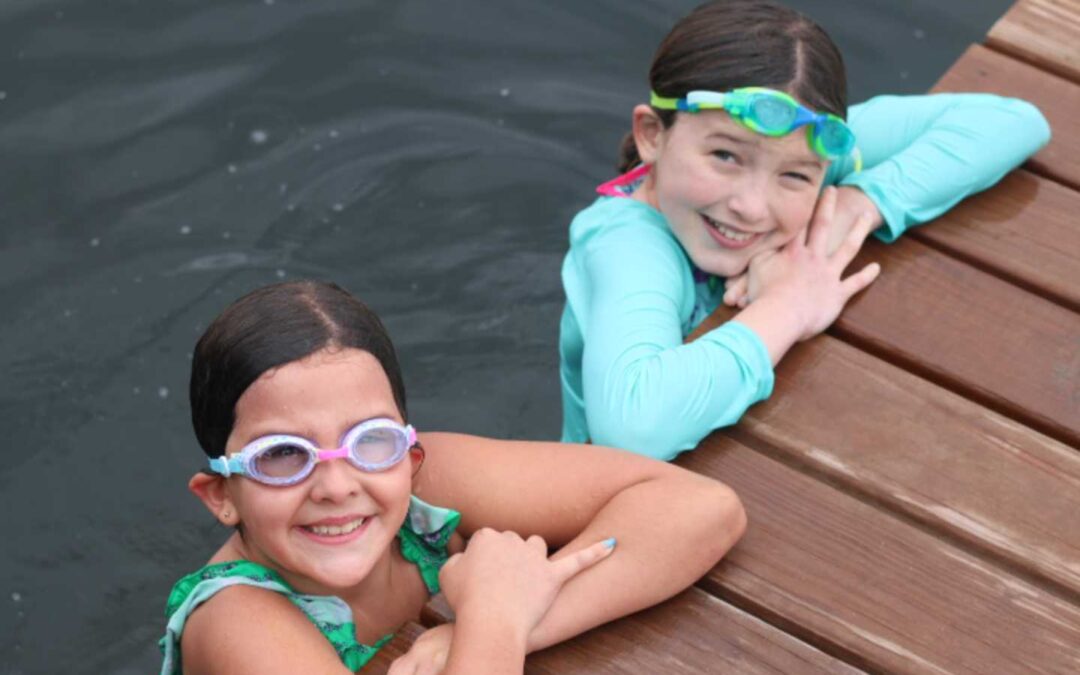 I’ve only been a parent for (almost) 10 years. But I have been working alongside, with and for children since 2001. That is a super long time. Longer than most of my staff have been alive. It is the 25 years of camp, the 10 years of being a mom and the fact that my own self-published monthly newsletter is sent out to hundreds of parents that I am now referring to myself as an “Expert”. And I would encourage you to refer to me similarly.
I’ve only been a parent for (almost) 10 years. But I have been working alongside, with and for children since 2001. That is a super long time. Longer than most of my staff have been alive. It is the 25 years of camp, the 10 years of being a mom and the fact that my own self-published monthly newsletter is sent out to hundreds of parents that I am now referring to myself as an “Expert”. And I would encourage you to refer to me similarly.
I would like to use my status as a (Capital “e”) Expert to share my thoughts about parenting, about kids, about camp, about community and maybe I’ll insert a funny anecdote or two for you. But unlike other real parenting experts and legitimately trained psychologists, I am here simply to share the things I know from my own personal experiences and hopefully, frankly, to validate your own parenting decisions. I reserve the right to make glaring generalizations, to misquote statistics and to deny having said something you might find controversial, despite it being in print. And, unlike my Instagram feed, I will never, ever,make you feel guilty about what you’re not doing or what you should be doing to raise happy children. With that, I proceed with my first KAT talk (like TED, but not).
 I’m finally reading The Anxious Generation. Have you read it? You should, or at least listen to it. It is a little sciencey and data heavy at the beginning, and it has been a really good read. A lot of what I will muse upon will be based on the things written about in Jonathan Haidt’s incredible book, which, for the record, is essentially a 295-page book that could be entitled “Why Send your Kid to Sleepaway Camp.” My book is flagged with yellow post-its, donned with scribbles such as: “Yes! Camp!”, “Kids’ AND Staff Mental Health!”, “Quality vs Quantity Friendships”, “Help grow more roots as a guide for campers” and the one I want to talk about today, “Let me do it-easier for me than you!”
I’m finally reading The Anxious Generation. Have you read it? You should, or at least listen to it. It is a little sciencey and data heavy at the beginning, and it has been a really good read. A lot of what I will muse upon will be based on the things written about in Jonathan Haidt’s incredible book, which, for the record, is essentially a 295-page book that could be entitled “Why Send your Kid to Sleepaway Camp.” My book is flagged with yellow post-its, donned with scribbles such as: “Yes! Camp!”, “Kids’ AND Staff Mental Health!”, “Quality vs Quantity Friendships”, “Help grow more roots as a guide for campers” and the one I want to talk about today, “Let me do it-easier for me than you!”
That last post-it was referring to this paragraph on page 74:
“Well-intentioned parents who try to raise their children in a bubble of satisfaction, protected from frustration, consequence and negative emotions, may be harming their children. [Kat edit: we all do this sometimes, you’re a great parent, your kids are ok, don’t panic, keep reading]. They may be blocking the development of competence, self-control, frustration tolerance, and emotional self-management. Several studies find that such “coddling” or “helicopter parenting” is correlated with later anxiety disorders, low self-efficacy (which is the inner confidence that one can do what is needed to reach one’s goals), and difficulty adjusting to college.”
So, back to my post-it. “LET ME (Kat) DO IT-EASIER FOR ME THAN YOU”. One of the reasons camp is so impactful is because at camp we have to take many people’s needs into account, not just your child’s. So, what happens as a result? She might have her archery class right after waterskiing which means she inconveniently has to quickly run to the washhouse to rinse off, then change out of her wet suit into dry clothes and run up to archery with wet hair. Super annoying. Then at archery, she does archery and, it turns out, she is absolutely fine.
 And at camp, when she’s late to tablesetting because she didn’t get out of bed when the wake-up bell rang, her Tribe Leader, the really nice one who knows everyone’s name, looks straight at her when she finally arrives at the Dining Hall-a little frustrated and definitely stressed. Later that day your camper asks her counselor to help make sure she is out of bed at the wake-up bell so she can make sure she’s on time for tablesetting.
And at camp, when she’s late to tablesetting because she didn’t get out of bed when the wake-up bell rang, her Tribe Leader, the really nice one who knows everyone’s name, looks straight at her when she finally arrives at the Dining Hall-a little frustrated and definitely stressed. Later that day your camper asks her counselor to help make sure she is out of bed at the wake-up bell so she can make sure she’s on time for tablesetting.
And speaking of Tribe Leaders… at camp, the 20 or so campers in a tribe vote for 2 Tribe Leaders to be their representatives and run tribe activities. It is typically a couple of the oldest campers in the tribe. But not necessarily. This can be one of the most exciting or disappointing announcements at camp. Your kind, lake-loving, shy Ishkaday was not voted in forTribe Leader.

She contains her tears right after the announcement at Council Fire. She even stands up during the keylog ceremony to congratulate and recognize the two new tribe leaders. And when she gets back to the cabin after the campfire, she cries. She cries to her friends who were elected tribe leader in their tribes, and she cries to her favorite counselor who hugs her and tells her it will be okay. During the first tribe meeting, she feels a little clunky, maybe even a little jealous. And then…she is totally okay. She is still kind, she still has her friends, she still loves the lake, still a little shy and definitely still loves the Ishkadays. And, she was asked to step-in and be the substitute Tribe Leader while the Tribe Leader from Cabin 5 is on her canoe trip. And that felt pretty okay, too.
These situations present frustration, consequences and even negative emotions. AND your child has just navigated all of them- and that’s just thefirst week of camp! Perhaps the best part is that she did it on her own…with the support of her camp community.
She learned she could do all those hard things on.her.own. And, best yet, you weren’t there to feel like you should call someone to fix her activity schedule to have two waterfront activities back-to-back, you weren’t responsible for waking her up and making sure she made it to the washhouse and therefore, table-setting on time. And you were not there to try to take away her heartache when she didn’t hear her name called for Tribe Leader. She is the owner of all those experiences, she gets to own how she handled them, and she owns the lessons learned from them.
 So, back to the post-it. It is easier for me, Kat, to help coach your camper through these experiences. I am her camp director, she knows I’m a safe place to land, knows I’m always there with a hug, but I’m not her mom. It is easier for me to do this with your child. So, let me. By letting her participate in camp you are ensuring that she learns she can navigate frustrations, consequences and even devastating disappointment. And we all know that life is filled with those. Camp allows her time to practice, to develop these skills, to make mistakes and to build her own self- confidence so she can tackle all the inevitable hard things up ahead, because she has done it before. And you, you gave her camp! Nailed it.
So, back to the post-it. It is easier for me, Kat, to help coach your camper through these experiences. I am her camp director, she knows I’m a safe place to land, knows I’m always there with a hug, but I’m not her mom. It is easier for me to do this with your child. So, let me. By letting her participate in camp you are ensuring that she learns she can navigate frustrations, consequences and even devastating disappointment. And we all know that life is filled with those. Camp allows her time to practice, to develop these skills, to make mistakes and to build her own self- confidence so she can tackle all the inevitable hard things up ahead, because she has done it before. And you, you gave her camp! Nailed it.

